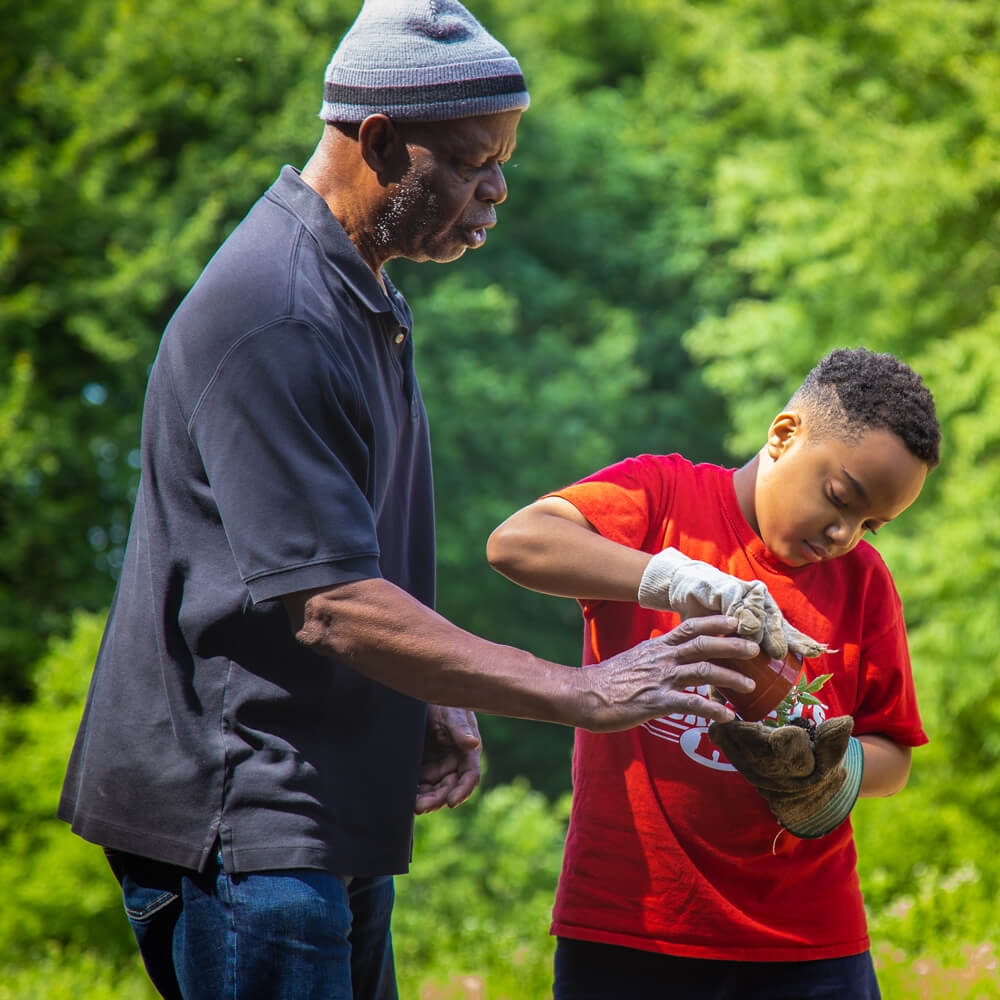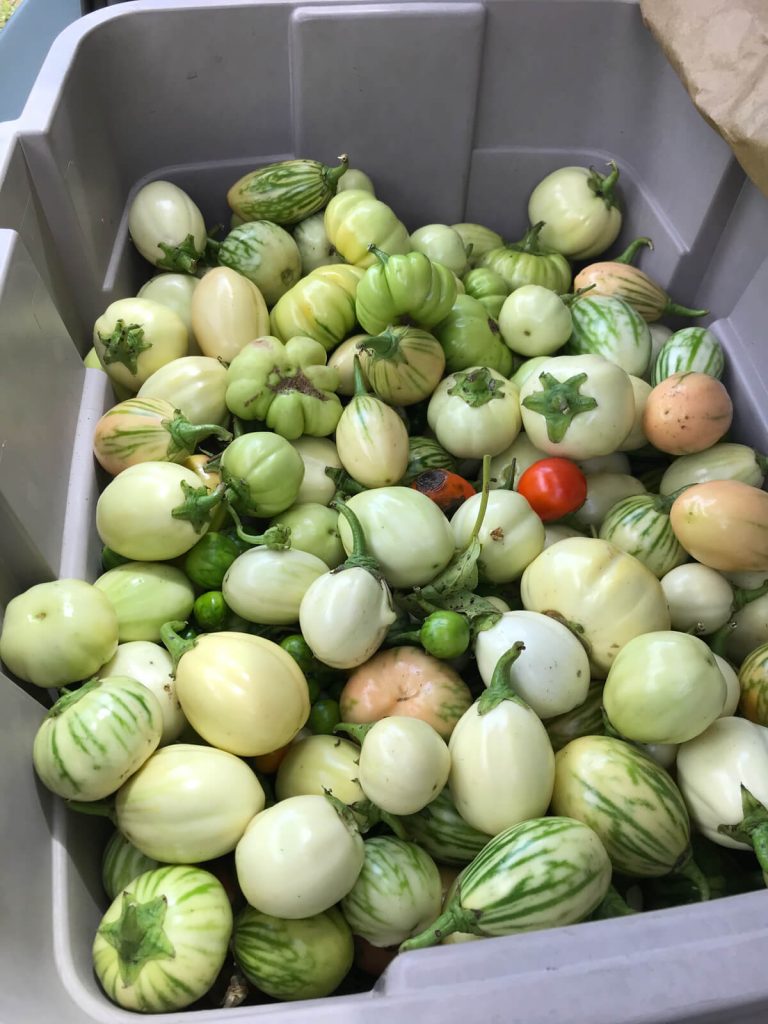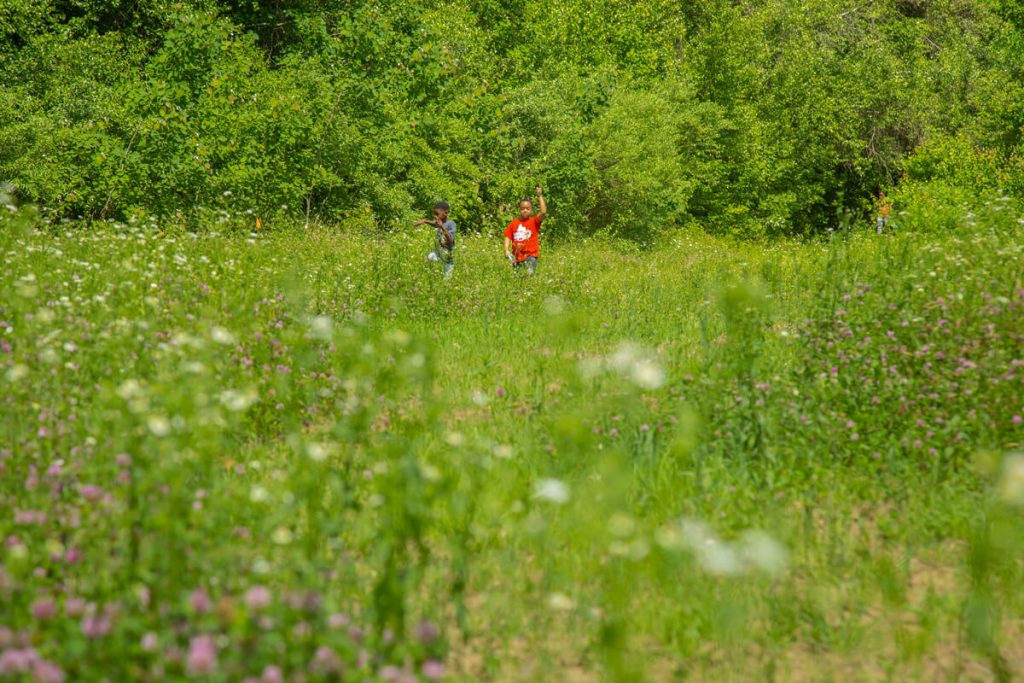


Julius Kolawole works with a young volunteer to plant seeds. Photos courtesy of the African Alliance of RI.
There is nothing that defines a culture more intrinsically than its food. The food a region eats is the first clue to its geography. A society on the ocean, in a humid climate, is more likely to have recipes incorporating seafood or coastal growing veggies versus a dry climate that boasts grapes or potatoes. Because of this, our bodies are usually acclimated to eating a diet that’s focused on the place we grew up. It is a source of nutrition, as well as comfort; eating the food we’ve farmed is a major thread that can physically connect us to the land that grew us.
Julius Kolawole, who founded Bami Farm in 2010, made it his mission to make a safe space for incoming African refugees. A place where they could “meet and talk and do what they know how to do best: grow vegetables.” Moving from small, tightly-woven villages to a vast, disparate America, can be incredibly disorienting and depressing. Kolawole says village life is where “everybody knows everybody. When you arrive in America, you are given a key to your apartment and left alone.”
Kolawole is not worried only about the loss of community that refugees suffer, but their waning health. It is no secret that American food is lacking nutrients and substance. The people that are affected most negatively by the mass produced, capitalistic functions of our dietary system are those who lack the knowledge, time, and money to seek alternatives. Unfortunately, African American and Latino populations disproportionately fall under this umbrella because of the systemic inequity plaguing our local and national governments. Kolawole knows he is “in a food desert. We are an understaffed community. We are a minority community. When you look around in South Providence, or see the bodegas, there are not any fresh vegetables. We are bringing fresh vegetables into the community, talking about it, and educating people about it. Let food be their medicine, and let their medicine be their food.”
Preparing the next generation to be self-sufficient is something Kolawole is centering in the practice of farming. Self-sufficiency, to Kolawole, is knowing what to eat and how to grow it, rather than somebody telling you what to do. Society oozes with insidious marketing for all types of food, yet we are largely unaware of what this food is. “TV and iPhones glorify all this nice-looking, good-priced hamburgers, and we don’t ask questions. You walk into a diner today and buy a hamburger wrapped in paper so the oil doesn’t bleed. Is that good for me? Is anyone telling me the truth?” Kolawole believes vegetables, the things we pull from the ground, are the only things we can trust.
The only way to do this would be to create small farms, everywhere. Kolawole believes that we must change our surroundings to change our habits. Instead of a neighborhood peppered with bodegas, convenience stores, and fast-food chains, he imagines streets filled with sun, and plots of dirt, blossoming with vegetables. This change would have a generational impact because it would create a more natural, and wholesome, interaction with our world. “If you were going from your house to school, or the playground, you might notice a tomato on your way, you might notice cilantro on your way, it becomes a part of your mind. Your curiosity will take you there, to say, what is this? What does this do? How does it taste? Why does it smell that way? Why are bees around? Why is the soil important? What does climate have to do with it?” Kolawole is doing what most can’t, or don’t know how, giving back to his people a gift that can grow for a lifetime. By fertilizing our curiosity, Kolawole is bringing us back to the land.
Before I end the conversation with Kolawole, he asks me, quite seriously, to observe what’s around me. I observe the people getting off and on the bus, what they carry, where they are going, what they look like. He asks me, softly, “Observe. Observe the loads they carry.”


